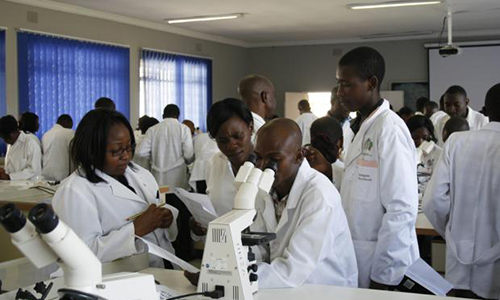UAlberta - Interdisciplinary Field School on Global Health

City: Various Country: Zambia
Overview
Addressing health & social issues can be especially challenging in low-resource contexts, such as in developing nations, due to low capacity for action at all levels. Positive, sustainable change in health & social issues depends on improving determinants of health (DoH) that lead to them, and may be hindered by many factors: power differentials & struggles, extreme shortages of human resources, training & policy barriers, culture & beliefs, low education & literacy, logistics & organization.
The challenges can be overcome, however, enabling stakeholders to engage and collaborate, improve policies and practices, and achieve improved health outcomes. To do so, however, requires inter-disciplinary & inter-sectoral thinking, people-centered approaches, and strategic application of health promotion strategies (creating supportive environments, strengthening community action, enhancing human resources, re-orienting health systems, building healthy public policy).
With this understanding, professors from the Public Health, Medicine, and Political Science disciplines developed an "interdisciplinary field school" offered in Zambia. Graduate learners will discuss issues with people living them and addressing them (residents, community & traditional leaders, health professionals and volunteers, researchers, government policy & NGO leaders). They will experience the environments directly and work with Zambia experts to understand the people and factors that contributed to problems & solutions.
When Can I Go?
Terms Offered: Summer
Dates & Duration: May 5-30, 2014
Eligibility Requirements
Open to: All Faculties
Level: Undergraduate, Graduate
Program Information & Contact
For all questions related to eligibility, applying, deadlines, costs and program details, visit:
Dr. Gene Krupa
School of Public Health
ekrupa@ualberta.ca